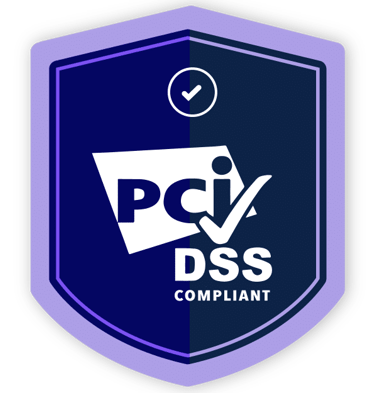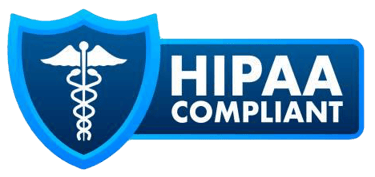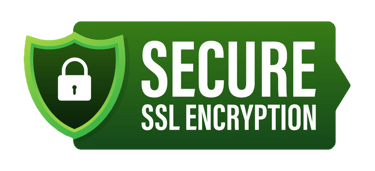Role of the Clinical Manager in Ensuring Care Quality and Compliance
Explore the vital role of the Clinical Manager in home health. Learn how they ensure care quality, staff oversight, and regulatory compliance.


For home health agencies, Medicare reimbursement is the financial backbone that keeps operations running smoothly. However, the complexity of billing rules often leads to costly delays when claims are submitted with errors. Even seemingly minor mistakes—like an incorrect code or late notice of admission—can significantly reduce cash flow. Understanding these pitfalls and putting preventive systems in place can make the difference between a healthy revenue cycle and constant frustration.
At HealthBridge Consulting, we work with agencies every day to identify, correct, and prevent these mistakes. Below, we outline the most common billing errors that cause reimbursement delays and offer practical solutions you can implement immediately.
1. Inaccurate or Incomplete Patient Information
Small mistakes such as misspelled names, incorrect Medicare ID numbers, or missing demographic details can cause claims to be rejected before they even reach review. Intake errors are among the most frequent issues that lead to payment delays.
Solution: Establish a verification process at intake where a second staff member cross-checks the information. Use eligibility verification tools to confirm accuracy before services begin.
2. Coding Errors and Misaligned Codes
Using the wrong CPT, HCPCS, or ICD codes—or failing to update coding practices when guidelines change—leads to denials and requests for resubmission. In home health, coding directly affects payment under the Patient-Driven Groupings Model (PDGM), making accuracy even more critical.
Solution: Provide regular coding education, keep software updated with the latest code sets, and implement peer reviews before submission.
3. Insufficient Documentation
Medicare requires documentation that fully supports the services billed. Missing physician signatures, vague progress notes, or incomplete care plans are common reasons for claim rejections. Without proper documentation, even correctly coded services can be denied.
Solution: Use structured documentation templates, ensure all required signatures are obtained in real time, and conduct routine internal audits to identify gaps before submission.
4. Errors in Billing Units
Home health claims often involve unit-based billing, such as visits or time increments. Submitting the wrong number of units, billing outside the authorized amount, or miscalculating time spent with the patient can lead to payment reductions.
Solution: Implement software that automatically calculates units based on visit length and ensure billing staff compare claims against authorized care plans.
5. Late or Missing Notice of Admission (NOA)
Since the shift from RAP to NOA, agencies must submit the Notice of Admission within five calendar days of the start of care. Late submission reduces payment by one-thirtieth for each day delayed, creating immediate financial strain.
Solution: Create automated alerts in your EHR to track NOA deadlines and train intake staff to treat NOA submission as a top priority.
6. Duplicate or Overlapping Billing
Duplicate claims or billing for services already covered under consolidated billing rules are a common cause of rejections. Overlaps occur when multiple providers submit claims for the same patient during the same period.
Solution: Establish claim-tracking procedures that flag duplicate submissions and review consolidated billing requirements carefully before filing.
7. Failure to Verify Eligibility and Coverage
Medicare coverage changes, secondary insurances, and eligibility issues can all affect payment. Providing services without verifying coverage creates significant risk of non-payment.
Solution: Verify eligibility before each new episode of care and keep a record of verification dates and outcomes. This ensures services are provided with reimbursement in mind.
8. Upcoding, Downcoding, and Compliance Risks
Inaccurate coding that inflates or underrepresents the level of care can delay payment and increase audit risks. Whether intentional or not, this practice often results in lengthy reviews and holds on reimbursement.
Solution: Train coders and clinicians to prioritize accuracy and consistency. Perform routine coding audits to detect patterns before they attract unwanted attention.
9. Untimely Claim Submission
Claims must be submitted within Medicare’s specified timeframes. Even small delays can result in denials, requiring rework or appeals. For agencies already managing thin margins, late claims create unnecessary revenue disruption.
Solution: Establish a billing calendar with submission deadlines clearly outlined. Use electronic claims systems that send reminders and track pending claims.
10. Poor Denial Management
Many agencies fail to act quickly on denied claims, leaving money uncollected. In many cases, denials can be corrected and resubmitted successfully, but only if they are tracked and addressed promptly.
Solution: Implement a denial management workflow that categorizes denials, assigns responsibility for corrections, and ensures appeals are submitted within deadlines.
HealthBridge Consulting’s Recommended Workflow
To minimize reimbursement delays, agencies should focus on strengthening each step of the billing process:
At Intake
Double-check all demographics.
Verify insurance eligibility immediately.
Trigger NOA submission within the required timeframe.
During Documentation & Coding
Use standardized templates for physician orders and care plans.
Conduct peer reviews of codes before claims are finalized.
Maintain up-to-date coding resources and training.
In Claims Preparation & Submission
Compare billed units against care authorizations.
Use claim-tracking systems to prevent duplicates.
Submit all claims promptly and monitor acknowledgment reports.
For Denial Management
Track reasons for denials and identify recurring patterns.
Correct and resubmit claims as quickly as possible.
Use denial data to adjust staff training and workflow processes.
Conclusion
Billing mistakes in home health are more than just administrative errors—they are direct threats to cash flow, compliance, and patient care continuity. The good news is that most delays are preventable when agencies implement strong processes, technology, and accountability systems.
HealthBridge Consulting partners with agencies to simplify Medicare billing, reduce denials, and accelerate reimbursement. By addressing common errors at every stage of the revenue cycle, you can transform billing from a liability into a strength—and focus on what matters most: delivering quality care to patients.







